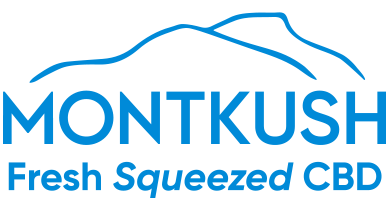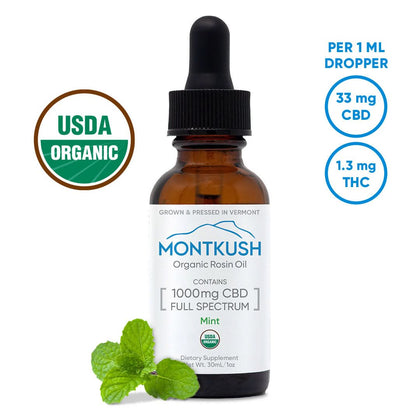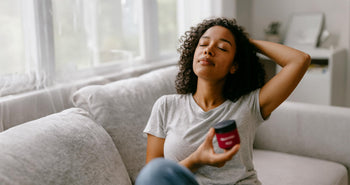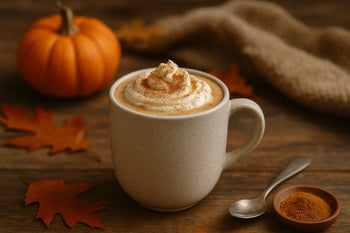

Table of Contents
Navigating the world of CBD can be complex, with different dosages and products affecting everyone uniquely. Key factors like body weight, the health conditions being addressed, and your personal body chemistry are crucial in finding the optimal dosage. The form of CBD—oils, edibles, or topicals—affects both its efficacy and activation time. Understanding how much CBD to take can significantly enhance its benefits, whether you're seeking pain relief, anxiety management, or general wellness.
This guide combines current research and expert advice to provide safe and effective dosage recommendations based on your individual needs, considering various factors and consumption methods. By understanding the science behind CBD and its body interactions, you can make informed decisions to improve your health and quality of life. Learn how to start with CBD, adjust your dosage, and identify signs of excessive or insufficient intake, equipping you to use CBD confidently and responsibly.
What is CBD?
CBD, or cannabidiol, is a compound derived from the cannabis plant. Known for its numerous health benefits, CBD doesn't produce a high like THC, making it a popular option for many people. Research has shown that CBD may help with a variety of conditions, such as anxiety, chronic pain, and even specific syndromes like Dravet and Lennox-Gastaut.
Unlike other forms of cannabis, CBD has gained a reputation for its therapeutic properties without the psychoactive side effects. Its usage has skyrocketed recently, with more and more people incorporating it into their wellness routines. Products like CBD oil, capsules, gummies, and tinctures are now widely available to cater to different preferences and needs.
Factors Influencing CBD Dosage
Determining the proper CBD dosage involves considering various individual factors that influence its effectiveness and safety. Each element plays a crucial role in tailoring your CBD intake to match your unique physical and therapeutic requirements. Here's a closer look at the key factors you should consider to optimize your CBD dosage effectively.
Body Weight
Body weight significantly impacts the necessary dosage of CBD, as heavier individuals typically require larger amounts to achieve desired effects. This variable is a fundamental consideration when calibrating your initial CBD intake.
Metabolism
Your metabolic rate determines how quickly CBD is processed within your body. A faster metabolism means CBD is metabolized quicker, potentially reducing the duration of its effects and necessitating more frequent dosing.
Condition Being Treated
The specific health condition or symptoms you are addressing with CBD can dictate the required dosage. Conditions like chronic pain, anxiety disorder, or epilepsy may require different dosages for effective relief. Cannabidiol (CBD) has shown significant promise in the treatment of Lennox-Gastaut Syndrome (LGS) and Dravet Syndrome (DS), two severe and treatment-resistant forms of epilepsy. Clinical trials and subsequent FDA approval of the CBD-based medication Epidiolex have highlighted its efficacy and safety for managing these conditions.
Body Chemistry
Individual responses to CBD can vary widely due to unique body chemistry. Factors such as genetic makeup and the endocannabinoid system's sensitivity play crucial roles in determining the optimal CBD dosage for an individual.
Duration of Use and Previous Exposure
Long-term use of CBD can lead to tolerance, meaning higher doses may be needed over time to achieve the same effects. Conversely, those new to CBD should start with smaller doses to understand how their body reacts.
Forms of CBD

The form of CBD you choose—whether full-spectrum, broad-spectrum, or isolate—significantly influences your dosage requirements. Here's how each type affects your dosing:
- Full-Spectrum CBD: This form includes a wide range of cannabinoids and terpenes found in the cannabis plant. The presence of these compounds means that full-spectrum CBD may offer enhanced benefits at lower doses compared to other forms due to the "entourage effect," where these compounds work synergistically.
- Broad-Spectrum CBD: Similar to full-spectrum, broad-spectrum CBD contains various cannabinoids and terpenes but without THC. This makes it a preferable choice for those looking to avoid the psychoactive effects of THC while still benefiting from the entourage effect. The dosage might be slightly higher than full-spectrum to achieve comparable effects due to the absence of THC.
- CBD Isolate: This form is pure CBD with no other cannabinoids or terpenes. It's typically chosen by those who need to avoid all other cannabinoids due to allergies or other reasons. CBD isolate may require higher doses to achieve the same effects as full-spectrum or broad-spectrum products because it does not benefit from the entourage effect.
These factors must be considered to tailor CBD dosage to your needs effectively. Understanding these elements will help you make informed decisions about adjusting your dosage for maximum benefit.
Types of CBD Products and Their Dosages

CBD comes in various types, each with different dosages and modes of administration. Here's a breakdown of the most common types of CBD products and their typical uses:
- CBD Oil: Often taken sublingually, CBD oil is popular for its fast-acting relief. Just a few drops under the tongue allow CBD to be absorbed directly into the bloodstream, providing quick effects.
- Capsules and Gummies: These forms provide a controlled dose of CBD, which is ideal for consistent and easy dosing. CBD capsules are particularly convenient for this purpose. Capsules and gummies are convenient for daily use, with each piece offering a specific mg of CBD, making it easy to track how much you consume.
- Tinctures: Similar to oils, tinctures are also taken sublingually and offer fast absorption. They often come in a variety of flavors and strengths, allowing for flexible dosing that can be adjusted to your needs.
- Creams: CBD-infused creams are applied topically and effectively target localized pain. They are absorbed through the skin, providing relief directly to the area where they are applied.
It's crucial to read the labels carefully for all these products to understand the mg of CBD per serving. The potency of nonprescription CBD products can vary widely, so knowing the concentration helps manage your dosage accurately. Additionally, always verify the quality and source of your CBD and cannabis products to ensure the best results.
How to Calculate CBD Dosage

Calculating your ideal dosage is a systematic process that can be greatly simplified using a CBD dosage calculator. Follow this step-by-step guide to find the right amount for your needs:
- Start with the Basics: Begin with a low dose, generally 1-2 mg of CBD for every 10 pounds of body weight. This starting point helps mitigate potential side effects and allows your body to adjust.
- Utilize a CBD Dosage Calculator: Enter your body weight and the condition you are trying to manage into a dosage calculator. These tools typically recommend a starting dosage and increase based on your input, providing an easy way to get a personalized dosage suggestion.
- Assess Dosage Strength:
- Low Strength: Ideal for mild symptoms and general health benefits, such as minor stress or inflammation.
- Medium Strength: Suitable for moderate conditions like ongoing anxiety, chronic pain, or recurring inflammation.
- High Strength: Recommended for severe symptoms or conditions, such as intense pain or significant anxiety episodes.
- Adjust Based on Form and Response: If you are using CBD oil, calculate the amount of CBD per drop to adjust your intake. For edibles like capsules or gummies, note the CBD content per piece. Increase your dosage slowly over time while monitoring your body's response.
- Consult With Your Healthcare Provider: Always discuss your CBD usage and dosage with a healthcare professional, especially if you are on other medications or have underlying health issues.
By following these steps, you can tailor your CBD intake to perfectly align with your health goals, ensuring you use CBD safely and effectively.
Practical Tips for Finding Your Best CBD Dosage
Finding the perfect dosage of CBD often requires a personalized approach and can involve a bit of trial and error. It's important to start with a low dose and observe the effects closely. Keep a detailed journal to track the amount of CBD you take, the type of CBD product you're using, and your reactions to it. This record-keeping will be invaluable in understanding how CBD affects you and making precise dosage adjustments.
Here are some additional suggestions to help you fine-tune your CBD dosage:
- Start Small and Gradually Increase: If you are new to CBD, begin with a small dose. Gradually increase the amount only if necessary based on your body's response. This method helps mitigate potential side effects and identifies the minimal effective dose needed for relief.
- Consider Microdosing: Many individuals find that taking smaller doses of CBD several times throughout the day better manages their symptoms than one large dose. This approach can help maintain a stable level of CBD in your system and might enhance its efficacy.
- Adjust Based on Timing and Food Intake: Experiment with different times of the day to take CBD, as its effects can vary depending on whether your stomach is full or empty. Some people report better results when taking CBD with meals, while others prefer taking it on an empty stomach.
- Be Consistent and Patient: The benefits of CBD might not be immediately noticeable. Consistency is crucial when experimenting with CBD dosage, as the effects can accumulate over time. Patience is also key; allow a few weeks to fully assess the impact of CBD at a particular dosage before making changes.
- Consult with Healthcare Providers: If you have underlying health issues or are taking other medications, discussing your CBD use with a healthcare professional can provide additional guidance tailored to your health needs.
Remember, what works for someone else may not work for you. Listening to your body and adjusting based on your experiences is essential to finding your optimal CBD dosage.
Safety and Side Effects of CBD
While CBD is generally considered safe, it's crucial to be aware of potential side effects. Some users might experience mild adverse effects such as dry mouth, dizziness, or drowsiness. If you're taking other medication, interactions are possible, so consulting with your doctor is essential before starting CBD.
The Food and Drug Administration (FDA) has approved only a few CBD products, like Epidiolex, emphasizing the importance of buying from reputable sources. Nonprescription products can vary widely in quality and purity, so doing your homework is critical. Always start with a low dose to minimize the risk of side effects and gradually increase as your body adapts.
Choosing the Right CBD Product
Selecting the best CBD product involves considering several factors, including your preferences, the condition you're treating, and how you plan to use CBD. Each type of product offers unique advantages depending on your needs:
- Oils and Tinctures: These options provide flexibility and fast absorption, making them an excellent choice for quick relief. For example, our Full Spectrum Mint CBD Oil Drops offer a potent fusion of USDA organic CBD rosin and organic mint flavoring, ideal for managing chronic pain and stress and improving sleep quality.
- Gummies and Capsules: These provide a convenient, controlled dosage, perfect for incorporating into daily routines without guesswork. Our CBD Softgels and Full Spectrum CBD Gummies are great examples, offering precise dosing in an easy-to-consume form.
- Topicals: Ideal for localized pain relief, topicals like creams and gels target specific areas without systemic effects. Our Pain Relief Cream with CBDA + CBD leverages the anti-inflammatory properties of cannabis to provide rapid, targeted relief.
Always check the concentration of CBD in the product to ensure it meets your dosage requirements. Montkush ensures the quality and potency of its products through rigorous third-party testing, which confirms their purity.
This transparency helps you enjoy CBD's full benefits without any unwanted surprises. For those new to CBD or looking to switch products, we provide a range of high-quality options to suit various needs and preferences.
CBD Dosage FAQs
To round out our comprehensive guide on CBD dosage, here are some frequently asked questions that may address any remaining uncertainties:
How do I know if my CBD dosage is too low?
If you do not notice any improvement in the condition you are treating after several weeks, your dosage might be too low. Consider gradually increasing the dosage until you find relief, keeping a close eye on how your body responds.
Can I take too much CBD?
While CBD is generally well-tolerated, taking too much can lead to side effects such as fatigue, diarrhea, or changes in appetite. It's important to start with a low dose and only increase slowly as needed.
How quickly can I expect to see results from CBD?
The onset of effects depends on the form of CBD used and your body's metabolism. Oils and tinctures may offer relief within minutes when used sublingually, while edibles and capsules might take an hour or more to take effect.
Does the effectiveness of CBD change over time?
Some individuals may develop a tolerance to CBD, which could reduce its effectiveness over time. If you find that your usual dosage is no longer effective, you may need to increase your dose slightly. However, it's advisable to take a short break from CBD to reset your tolerance.



